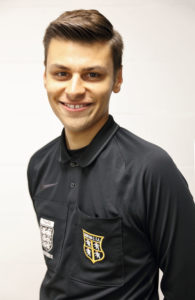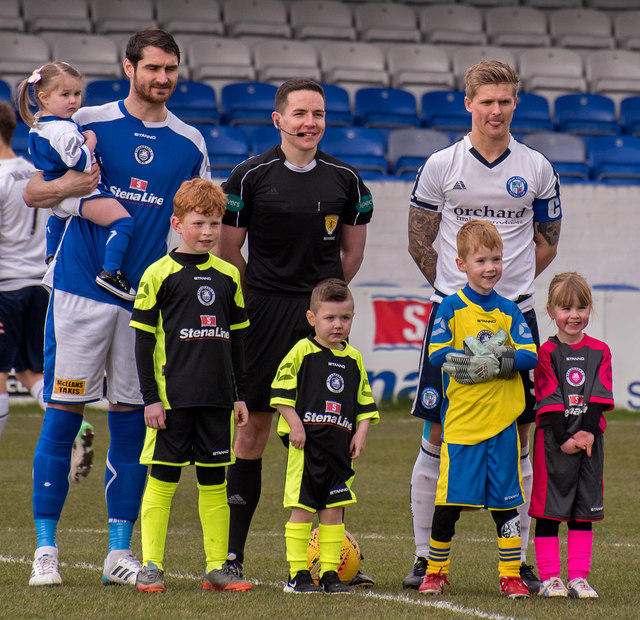Managing your own emotional responses to difficult situations on the pitch or the players and club officials is a key part of being mentally tough as a referee.
One such situation that most people would judge to be difficult and certainly not easy would be awarding a penalty kick, usually in front of a large and vociferous crowd.
Even thinking about and visualising it is enough to get your heart rate up and the adreneline pumping!
Using a mentally tough approach I would try and remove my emotion from the situation and remain calm through controlled breathing and visualising how I would want to award the penalty kick and sell the decision to players.
I was interested to read this article below by The Atlantic Editor, Julie Beck, suggesting that ‘calming down’ might not actually be the best advice before getting out onto the pitch.
Anxiety, is a multi-faceted, variable problem that affects many people. Everyone has different strategies for coping. A recent study in the Journal of Experimental Psychology looked at one particular brand of anxiety – performance anxiety. Life can be tough, previous research has shown that anxiety can hurt performance, that’s knowledge that certainly isn’t going to make anyone less anxious.
When faced with sweaty palms or trouble breathing before a big match, the go to advice is to try to calm down.
But Alison Wood Brooks of Harvard Business School looked into the effectiveness of doing just the opposite and getting excited.
Brooks conducted a series of experiments designed to test the possibility of “reappraising” anxiety as excitement. First, she asked participants in an online survey what the best advice for someone anxious about a presentation would be, to canvas the general consensus on coping with performance anxiety.
Next, a different group of 113 participants were asked to sing on a karaoke video game, an anxiety-inducing task for sure. Before singing, participants were asked to tell themselves “I am anxious,” “I am excited,” or nothing. Then the video game measured how well they performed. Other experiments checked variables like familiarity with the song and confidence in their own singing.
Another similar experiment had participants make a short public speech, and tell themselves either “I am calm” or “I am excited” beforehand. Three independent ajudicators judged how well they delivered their speeches. For an experiment where the task was a maths performance, rather than telling themselves to stay calm or get excited, participants received instructions to do so. A final experiment tested the extent to which participants saw the maths task as a threat or an opportunity.
The results were that the initial online survey confirmed that most people (85%) thought the best advice in the face of performance anxiety was to try to calm down. Participants sang better when they told themselves they were excited than when they said “I am anxious,” or nothing. Participants in the excited condition were also rated as giving better speeches and performed better on the maths challenge than those in the calm state. Brooks also found that people who reevaluated their anxiety as excitement were more likely to view the maths task as an opportunity than as a threat.
The implications of this are that this study challenges the conventional wisdom that you should try to calm down if you’re feeling anxious before a performance. Brooks proposes that this is because anxiety and calm are radically different emotions, one is high arousal, one is low. In contrast, “anxiety and excitement have divergent effects on performance, but the experience of these two emotions is quite similar,” the study reads. So it might be easier to switch to excitement from anxiety than to calm down, a change which could dramatically improve your performance when youre out in the middle.
Would you be willing and open to trying to channel your pre-match nerves and anxieties into excitement if you could improve your performance?
At The Third Team I work individually and in collaboration with different professionals where I have developed workshops associated with Resilience and Mental Toughness Development to help referees. The workshops are interactive, where referees are encouraged to open up and share their experiences to help each other.
Feel free to contact me if you’d like to know more about my workshops and how I could help you or your officials.
Best Wishes,

Nathan Sherratt
Referee Educator & Managing Director of The Third Team

Nathan Sherratt
Nathan Sherratt, Referee Educator, Resilience Trainer and Managing Director of The Third Team. A Mental Toughness Practitioner based near Durham, North East England.

